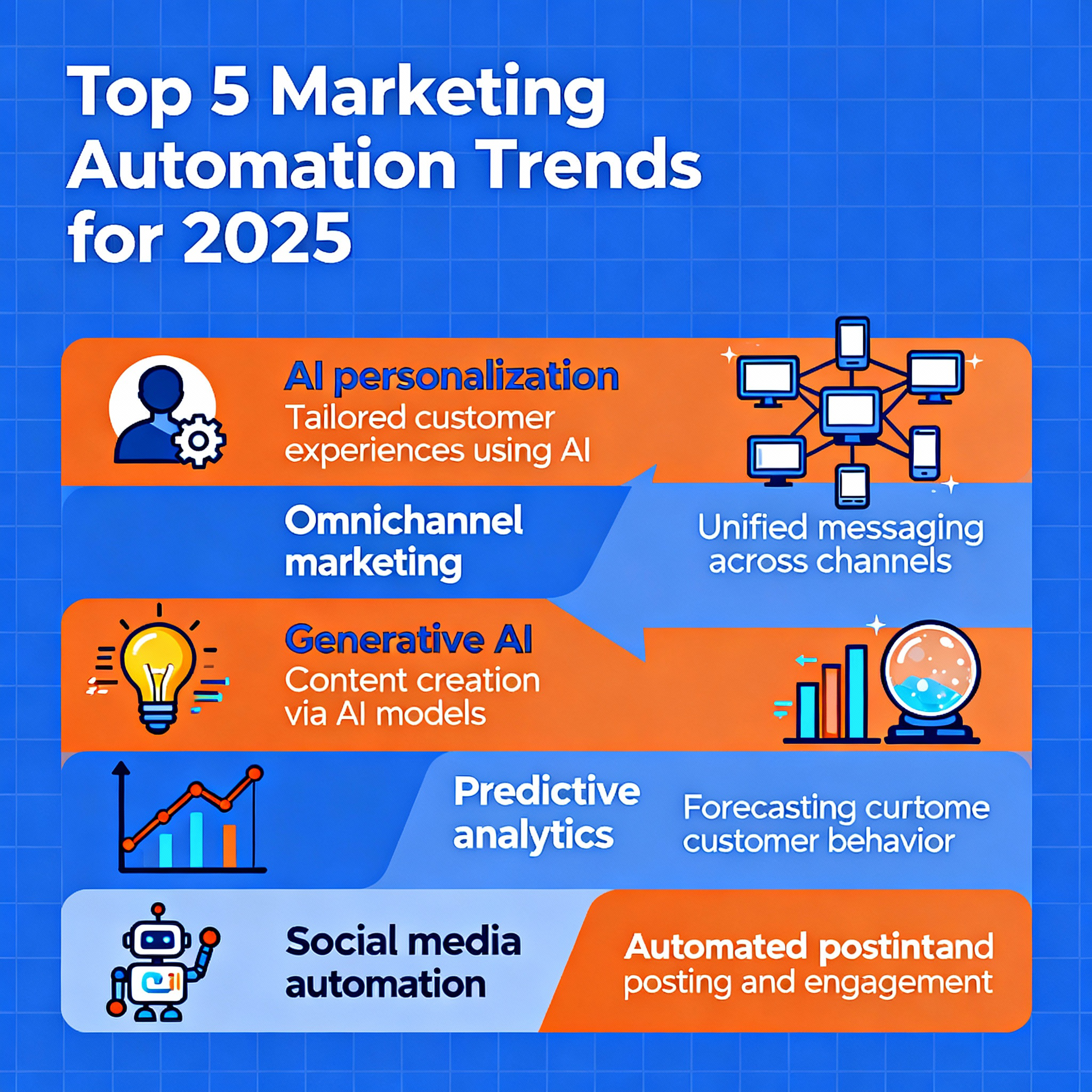
Marketing automation is evolving rapidly in 2025, with new technologies and strategies reshaping the way B2B companies engage customers, streamline operations, and drive growth.
1. AI-Powered Personalization at Scale
AI algorithms enable businesses to analyze vast amounts of customer data, predict preferences, and tailor content in real time. Hyper-personalization ensures prospects and customers receive highly relevant messaging, improving engagement and conversion rates.
2. Full-Funnel Omnichannel Marketing
Marketing automation platforms now coordinate campaigns across all channels — email, social media, SMS, web, and offline touchpoints — delivering seamless interactions throughout the customer journey. Businesses leveraging omnichannel strategies retain up to 89% of customers.
3. Generative AI in Content Creation
Generative AI is transforming content marketing by producing blog posts, social media updates, and video scripts efficiently and at scale. This allows marketers to respond faster to trends and continuously engage target audiences with fresh, optimized content.
4. Predictive Analytics for Customer Insights
Predictive AI utilizes historical data to forecast customer behaviors, improving lead scoring, segmentation, and timing of campaigns. Nearly 95% of businesses are using predictive analytics to enhance targeting and personalize client outreach.
5. Automated Social Media Management
Automation tools streamline social media scheduling, posting, and analytics, maximizing reach and engagement while freeing marketing teams to focus on strategy. Over 90% of marketers agree automation is critical for social success.
Key Takeaways
- Automation is fundamental for B2B marketing success in 2025, driving efficiencies and improving campaign ROI.
- AI and predictive analytics will remain at the heart of marketing strategies, enabling more granular targeting and personalization.
- Omnichannel approaches and automated management tools ensure businesses meet customers wherever they are in their journey.
These trends are shaping the future of B2B marketing automation, making it essential for companies to adapt and innovate to remain competitive.

